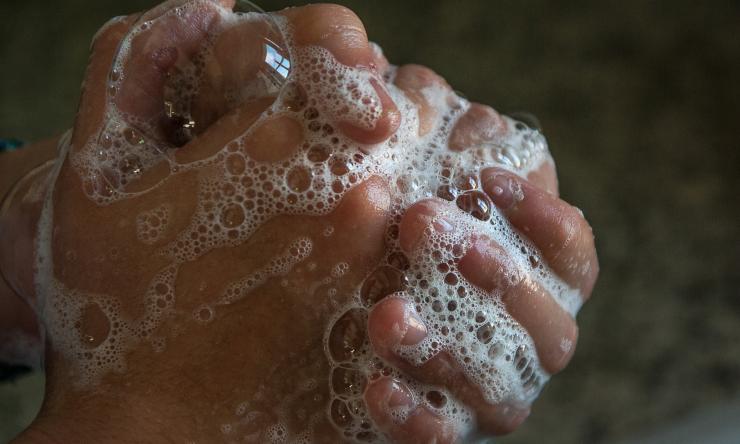Arm children with habits rather than extra supplies this school year
This back-to-school season, many parents may want to load up their children’s backpacks with sanitizing and cleaning supplies along with the typical school supplies like crayons and notebooks. But according to a Baylor College of Medicine infectious diseases expert, rather than focusing on packing extra supplies, the most important thing parents can do is teach children habits to help prevent the spread of COVID-19.
“In terms of what to bring and not to bring to school, it’s more about arming your child with education and practice so they can continue engaging in risk mitigation strategies outside of the home,” said Dr. Stacey Rose, assistant professor of medicine in the section of infectious diseases at Baylor. “It’s one thing to tell children to wear masks all day, which is important, but it’s another thing to watch children to make sure the mask fits them well and is comfortable so they don’t have to fidget with it all day. Before going back to school, parents can let children practice wearing masks at home.”
Establish good habits
It also is important to help children get into good habits, like handwashing, before they head back to the classroom, Rose said. They should be reminded about immediately washing hands when:
- They touch their mask or face
- They have the sniffles and use a tissue (tissue also should be discarded immediately)
- They visit the bathroom
- They are about to eat and once they finish eating
If a child will use hand sanitizer, it is not a bad idea to add a small bottle in their backpack, but that cannot replace the strategies of maintaining physical distancing and wearing a mask appropriately.
While many parents may be tempted to send extra cleaning supplies, Rose said to leave the cleaning to the school’s protocols.
“Children going to school shouldn’t be responsible for ensuring that surfaces and facilities are clean. They should be responsible for washing their hands,” Rose said.
Whether a child is wearing a disposable or reusable mask, it would be a good idea to pack one extra mask for them to take to school. If the mask they are wearing soils during the day, they can switch it out with their extra mask.
Because of an increase in food allergies among children, Rose said most schools have procedures in place about not sharing food, but parents can reinforce this rule now for an additional reason – it decreases the likelihood of close contact.
It’s best for every child to bring their own water so that children are not congregating near and contaminating the water fountain, so parents should consider packing an extra water bottle.
Schools may increase outdoor activities for recreation or as part of a lesson, since being outside helps reduce the risk of spreading the virus. In this case, parents may want to pack other items their child may need when outdoors, such as sunscreen, sunglasses, a hat or a jacket, Rose said.
Afterschool precautions
When children return home for the day, the first thing they should do is wash their hands. If a child says they came in close contact with someone who sneezed or coughed, they should change clothes and take a shower, especially if they live with someone who is immunocompromised.
“There isn’t a study that says changing clothes and showering will help prevent the spread to immunocompromised individuals, but there is nothing wrong with taking extra measures,” Rose said.
Reusable masks should be washed after each day of use since they are absorbing secretions from the child. If a child has changed their mask for a new one in the middle of the school day, be sure to wash both masks when they return from school.
There is not a need to wipe down or wash backpacks or other school supplies unless the item is soiled.
“As far as we can tell, the majority of transmissions are occurring from person to person,” she said. “Asymptomatic individuals can transmit the virus to their friends and teachers as can those who are minimally symptomatic. For the wellbeing of everybody, we need to be hyper vigilant about adults and kids staying home when they are the least bit symptomatic.”
Teaching children in a child-friendly way about the virus and about spreading it is important.
“We should provide the education and tools they need to keep themselves as safe as possible. We are empowering them with information and practice – the more they can practice wearing a mask and washing hands, the more likely they will be to comply with those standards outside of the house,” Rose said.










